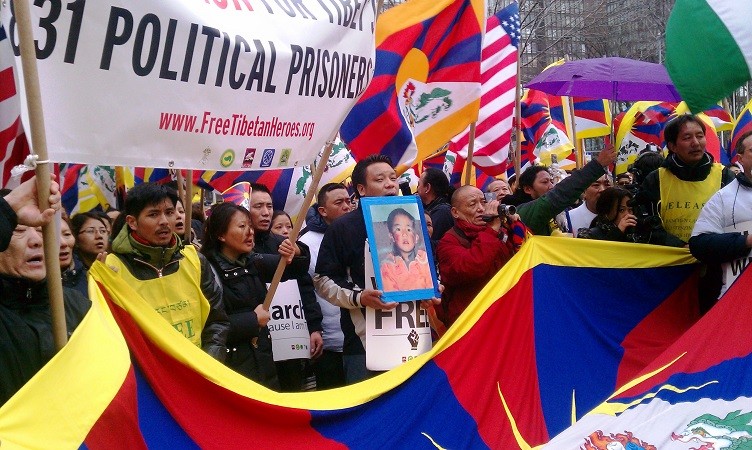
International Tibet Liberation Day, also known as International Tibet Mukti Divas, is observed on May 23 each year to commemorate the Tibetan people's ongoing struggle for freedom and the preservation of their cultural heritage. This day serves as a reminder of the challenges faced by Tibetans and highlights the international community's support for their cause. The occasion provides an opportunity to reflect on the significance of Tibet's liberation and the continued efforts towards achieving a just and peaceful resolution.
Historical Context: The Tibetan struggle for liberation dates back to 1950 when the People's Republic of China invaded Tibet and occupied the region. This marked the beginning of a tumultuous period for Tibetans, characterized by cultural suppression, human rights abuses, and political control. His Holiness the 14th Dalai Lama, Tenzin Gyatso, along with many Tibetans, fled into exile in 1959 following a failed uprising against the Chinese rule. Since then, Tibetans both within Tibet and in exile have persistently advocated for their rights and the preservation of their unique cultural identity.
Significance of International Tibet Liberation Day: International Tibet Liberation Day holds immense significance as it raises global awareness about the Tibetan struggle for freedom and justice. The day serves as a platform to express solidarity with Tibetans and their aspirations for self-determination. It provides an opportunity for governments, organizations, and individuals worldwide to voice their support for the Tibetan cause and urge the Chinese government to engage in peaceful dialogue to find a mutually acceptable solution.
Commemorative Events and Activities: On May 23, various events and activities are organized worldwide to commemorate International Tibet Liberation Day. These activities include peaceful demonstrations, public rallies, film screenings, conferences, and cultural exhibitions that shed light on Tibet's history, culture, and the challenges faced by its people. Tibetan communities and their supporters organize talks and panel discussions to facilitate dialogues and promote understanding among different stakeholders.
Furthermore, governments, non-governmental organizations, and human rights activists use this occasion to issue statements, hold press conferences, and conduct awareness campaigns to highlight the Tibet issue. Social media platforms also play a crucial role in spreading the message of Tibet's liberation and garnering support globally.
Role of the International Community: The international community has played a vital role in supporting Tibetans in their struggle for liberation. Governments, human rights organizations, and individuals have consistently urged the Chinese government to respect the rights of Tibetans, engage in meaningful dialogue, and address their grievances. International Tibet Liberation Day serves as a reminder to the international community to continue their efforts in raising awareness, advocating for justice, and working towards a peaceful resolution.
International Tibet Liberation Day is a significant occasion that commemorates the ongoing struggle of Tibetans for freedom, human rights, and the preservation of their unique cultural heritage. This day not only honors the courage and resilience of the Tibetan people but also serves as a global platform for voicing support and advocating for a peaceful resolution. By standing in solidarity with Tibetans, the international community can contribute to the pursuit of justice, freedom, and the realization of the aspirations of the Tibetan people.